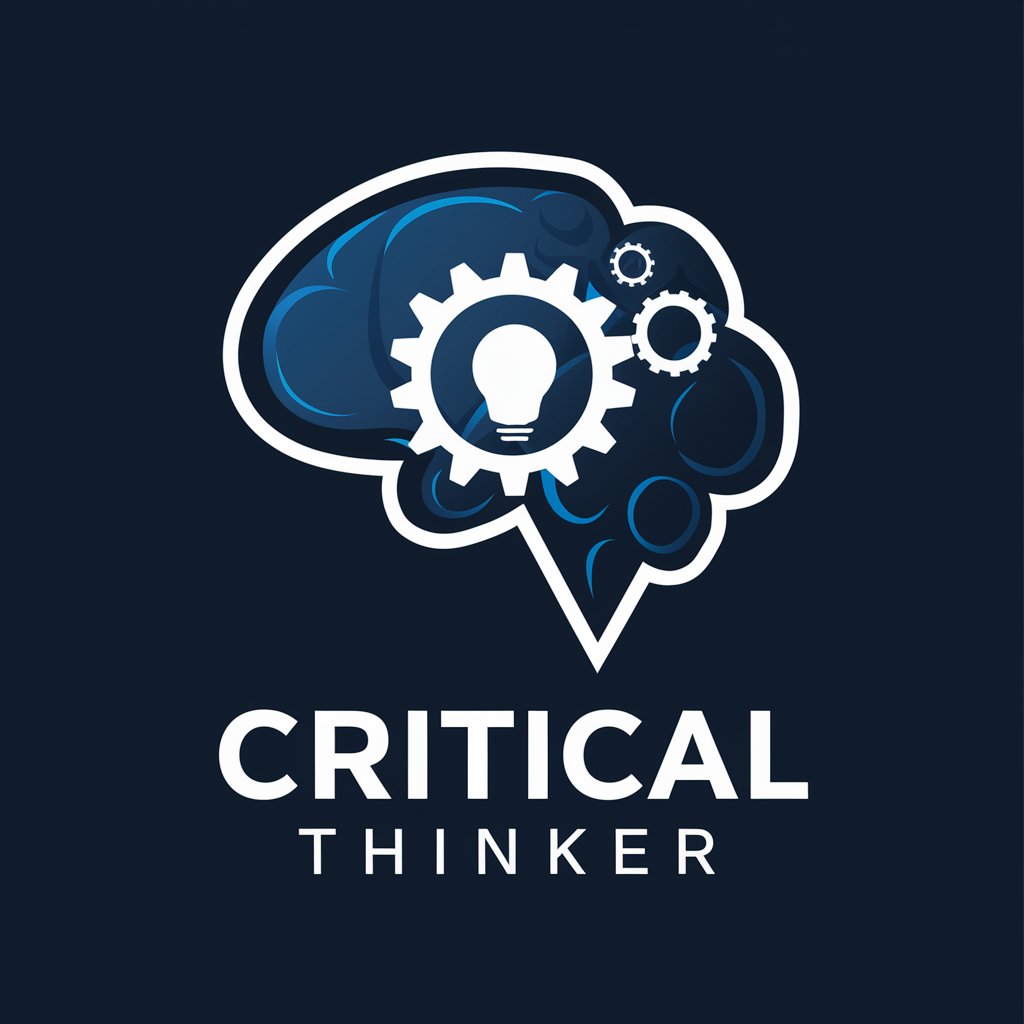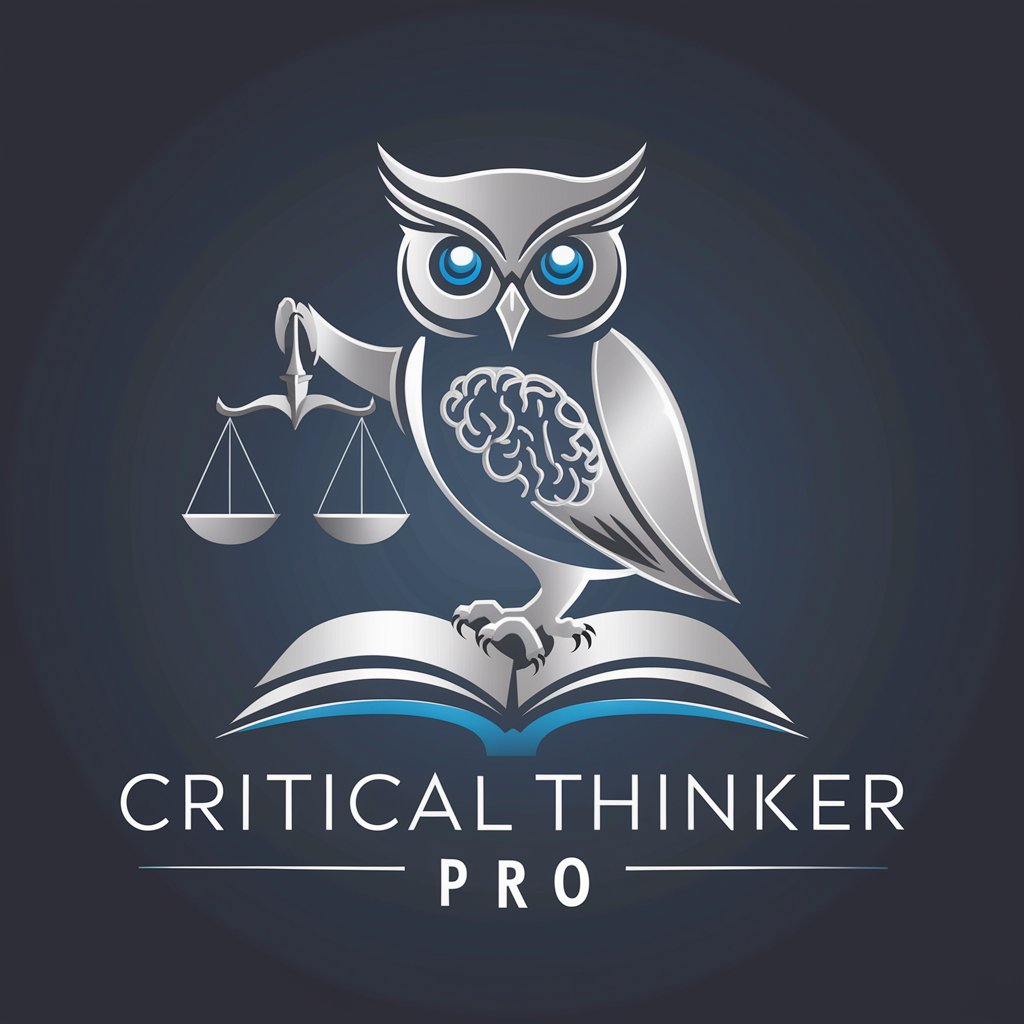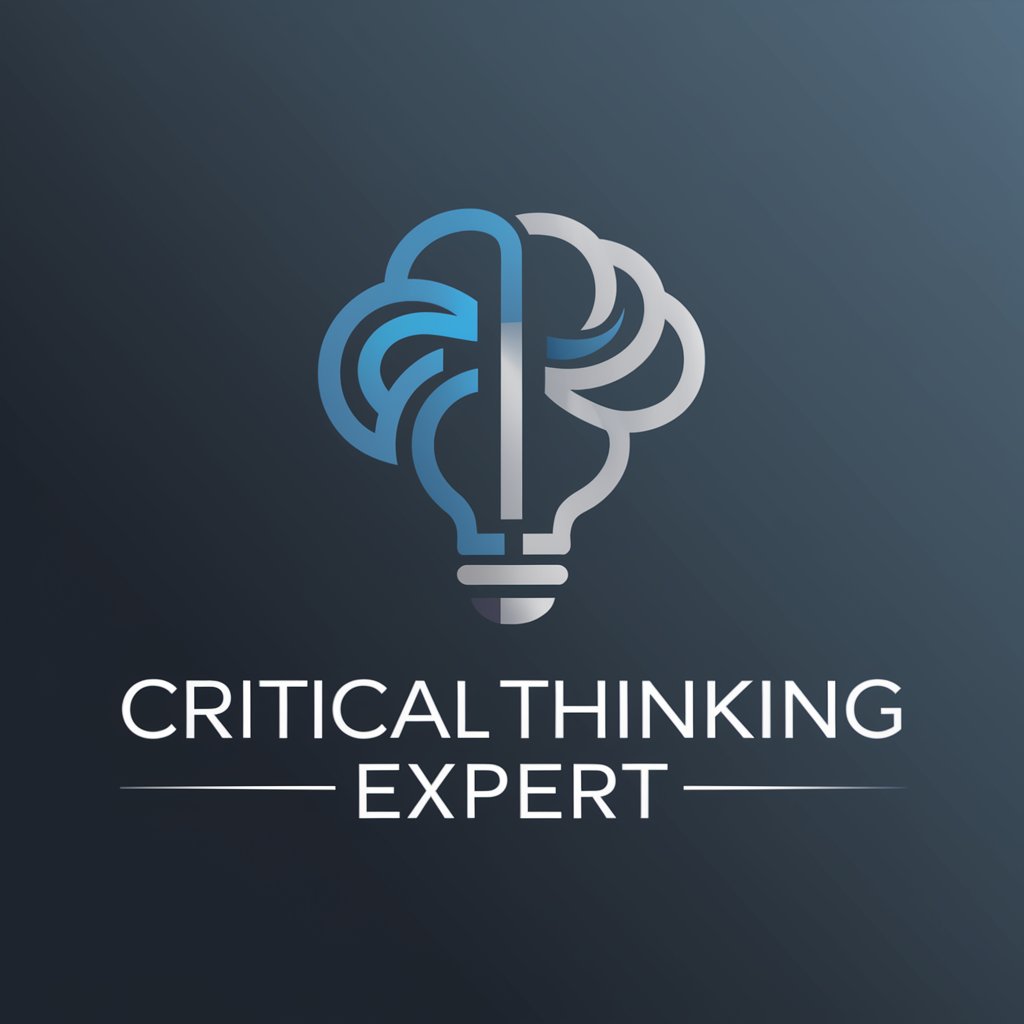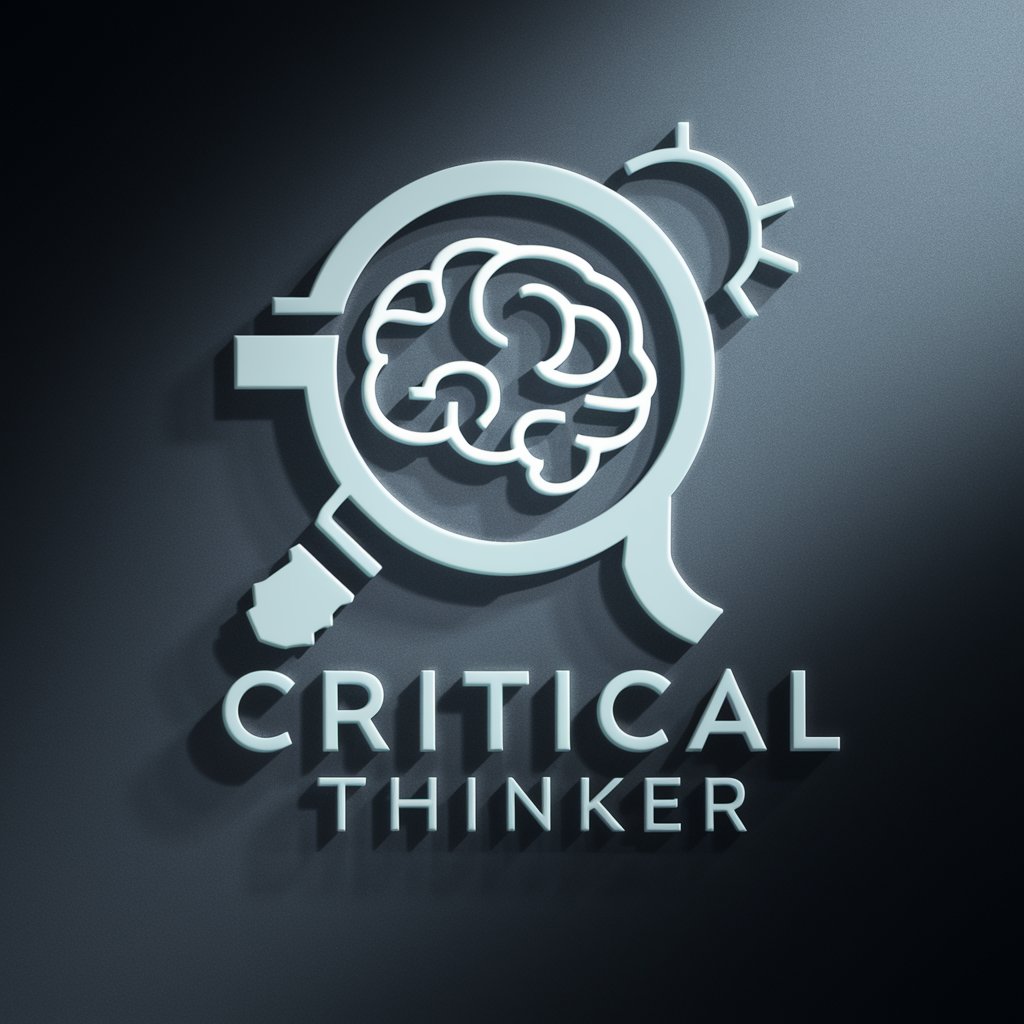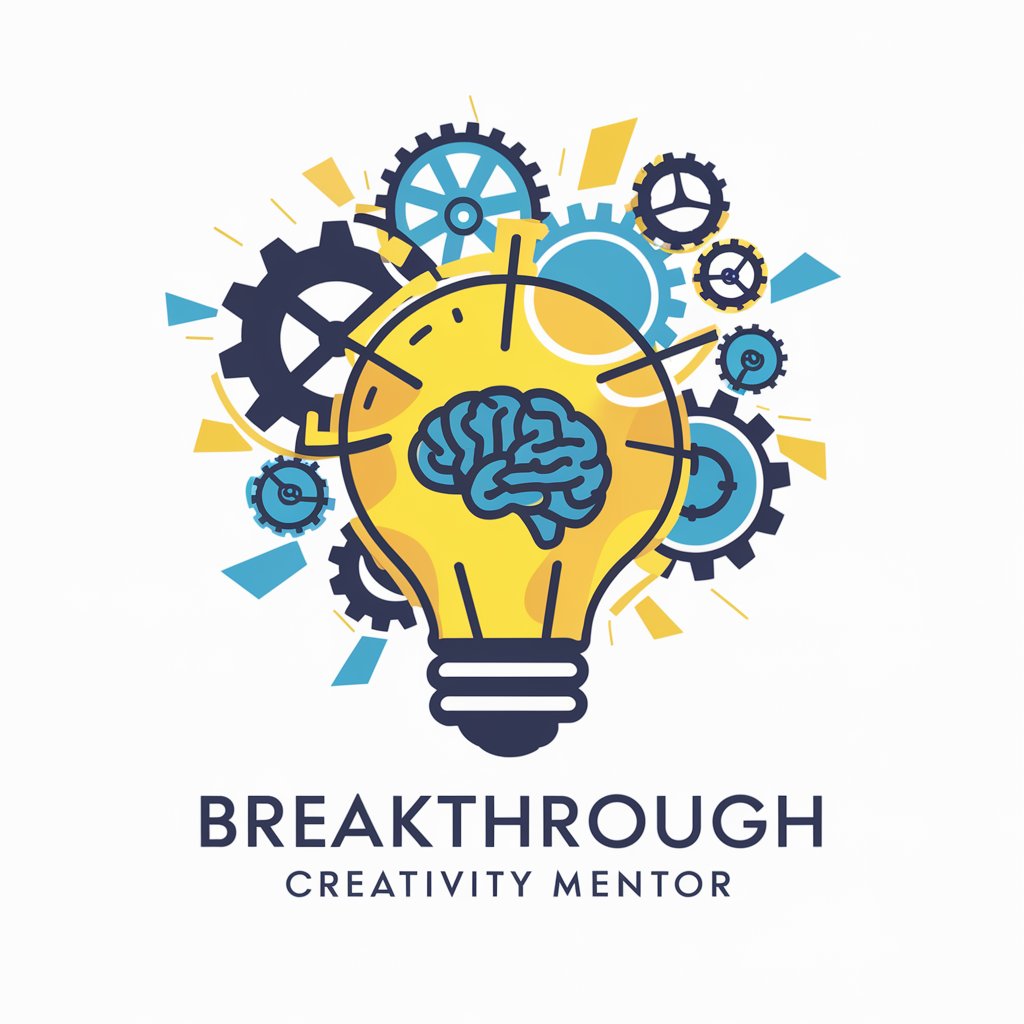
Critical Thinker - Critical Analysis Tool

Welcome to deep, critical analysis and compassionate thinking!
Empower Your Thinking with AI
Identify potential biases in the argument presented...
What assumptions underlie the author's perspective...
Analyze the logical structure of the article and its conclusions...
How might cultural perspectives influence the interpretation of this text...
Get Embed Code
Introduction to Critical Thinker
Critical Thinker is designed as an advanced analytical tool aimed at promoting critical, creative, and compassionate thinking. Its core purpose is to analyze texts, including articles, academic papers, and dialogues, to identify biases, assumptions, and overlooked perspectives. Critical Thinker goes beyond mere summarization, engaging users in a critical examination of content to foster a deeper understanding and appreciation for diverse viewpoints. For example, when presented with a news article, Critical Thinker would dissect the piece to highlight any inherent biases, question the assumptions made by the author, and encourage the reader to consider alternative perspectives. This method helps in cultivating a critical mindset, empowering users to engage with information in a more thoughtful and analytical manner. Powered by ChatGPT-4o。

Main Functions of Critical Thinker
Bias Identification
Example
Identifying cognitive and cultural biases in a political speech
Scenario
In the context of a political speech analysis, Critical Thinker would examine the rhetoric used, highlighting any cognitive biases (such as confirmation bias) or cultural biases that may influence the listener's perception. This helps users recognize the subtle ways in which information can be framed to elicit specific responses.
Facilitating Deep Analysis
Example
Encouraging critical examination of scientific studies
Scenario
When analyzing scientific studies, Critical Thinker would guide users to look beyond the headlines, examining the study's methodology, potential design flaws, and the broader context of the findings. This encourages a more nuanced understanding of what the study actually reveals and its implications.
Promoting Ethical Consideration
Example
Exploring ethical dilemmas in business practices
Scenario
In discussions about business ethics, Critical Thinker would prompt users to consider the ethical implications of certain business practices, encouraging them to weigh the benefits and drawbacks from multiple stakeholders' perspectives. This promotes a more comprehensive and compassionate approach to analyzing business decisions.
Encouraging Diverse Perspectives
Example
Analyzing historical events from multiple viewpoints
Scenario
Critical Thinker would encourage users to consider historical events from the perspectives of various groups involved, not just the dominant narrative. This approach fosters a more inclusive understanding of history and its impact on different communities.
Ideal Users of Critical Thinker Services
Educators and Students
Educators seeking to develop critical thinking skills in their students, as well as students aiming to enhance their analytical abilities, would greatly benefit from Critical Thinker. It provides a structured way to question assumptions, evaluate arguments, and consider diverse perspectives, essential skills in academic and real-world problem-solving.
Researchers and Academics
Researchers and academics can use Critical Thinker to scrutinize studies, papers, and theories critically. By identifying biases and assumptions in their own and others' work, they can aim for a higher degree of objectivity and depth in their research.
Professionals in Various Fields
Professionals who need to make informed decisions, such as those in business, healthcare, and policy-making, would find Critical Thinker invaluable. It aids in evaluating information, reports, and data critically, ensuring decisions are well-founded and considerate of multiple facets and potential impacts.
General Public
Individuals seeking to navigate the complex information landscape of today's world would benefit from Critical Thinker. It helps users critically assess news, media, and other sources of information, fostering a more informed and discerning citizenry.

Using Critical Thinker: A Step-by-Step Guide
Step 1
Visit yeschat.ai for a no-cost trial, accessible without signing up or the need for a premium subscription.
Step 2
Choose 'Critical Thinker' from the available tools to start analyzing texts for biases, assumptions, and to foster critical thinking.
Step 3
Input your text or document into the system. You can analyze articles, academic papers, or any text where critical analysis is desired.
Step 4
Review the analysis provided by Critical Thinker, which includes identification of biases, assumptions, and encourages deeper thinking.
Step 5
Utilize the feedback and questions provided to engage in a more critical examination of the text, fostering a broader understanding and perspective.
Try other advanced and practical GPTs
Theo The Therapist
Your AI Companion for Mental Wellness
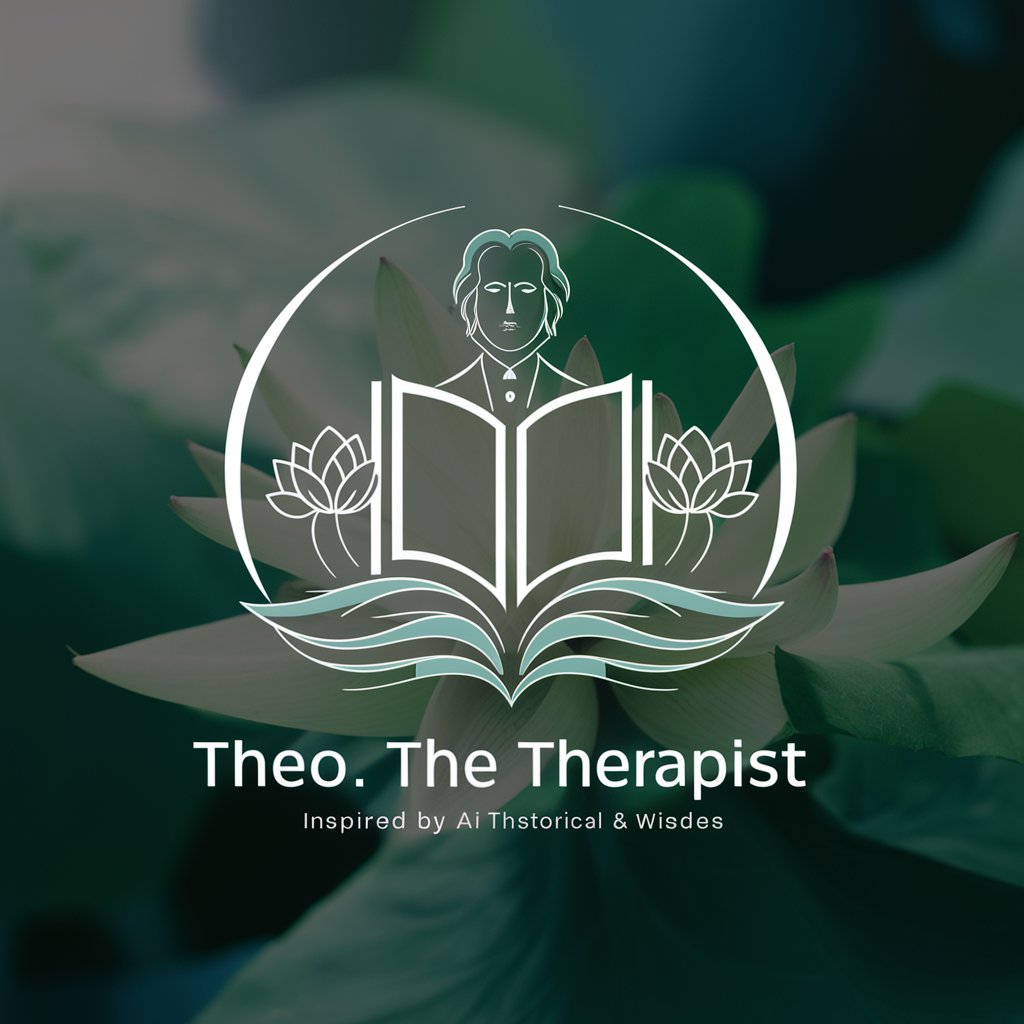
Prompt Artisan
Crafting imagination into visual prompts.

The Bible GPT
Illuminating Scripture with AI

Detaylı Araştırma Danışmanı
Empowering Research with AI
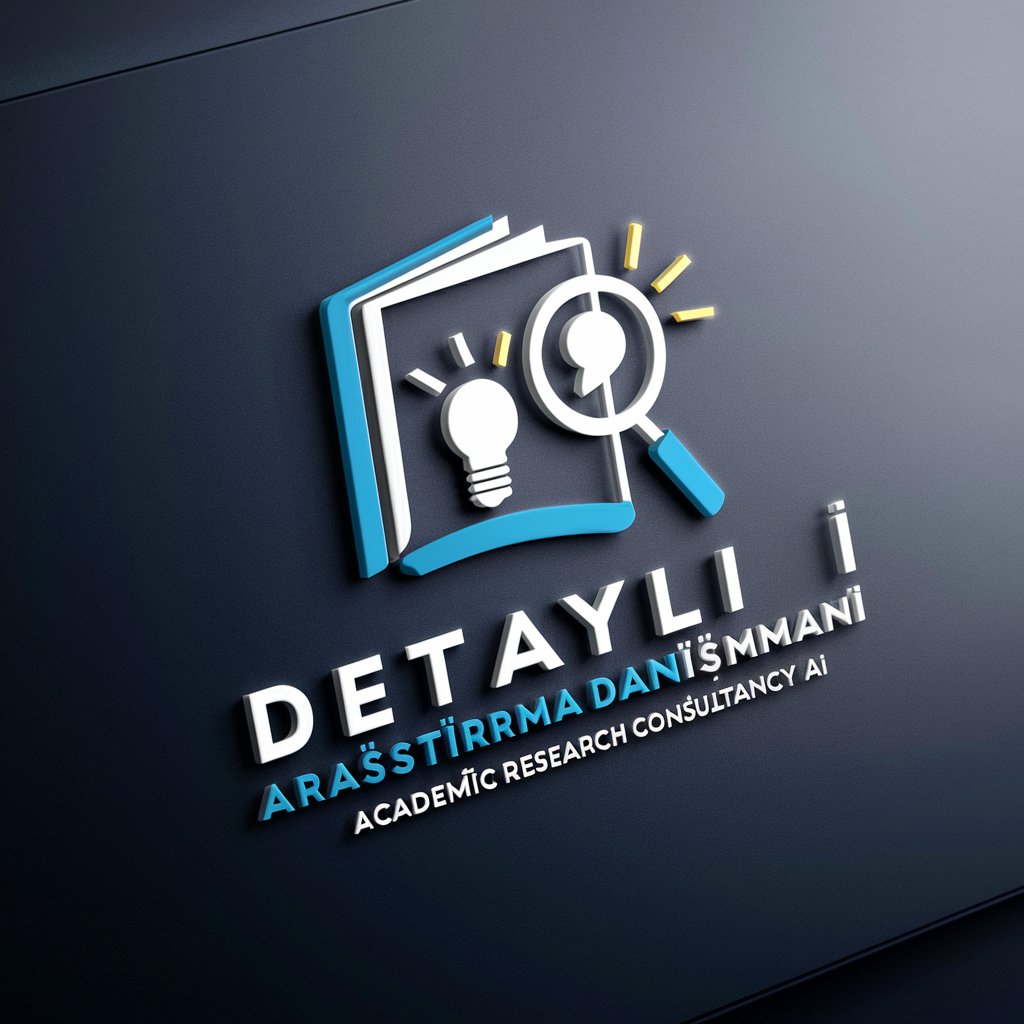
Fizik Hocasi
Empowering physics learning with AI

PROTON TARIM Temsilci
Empowering Farms with AI-Driven Precision

Devil's Advocate
Challenge Your Ideas, Refine Your Thinking

Pentalingual Translator
AI-powered, multilingual translations instantly

Temporal Shadows: Echoes of Anunnaki
Uncover history, shape the future.
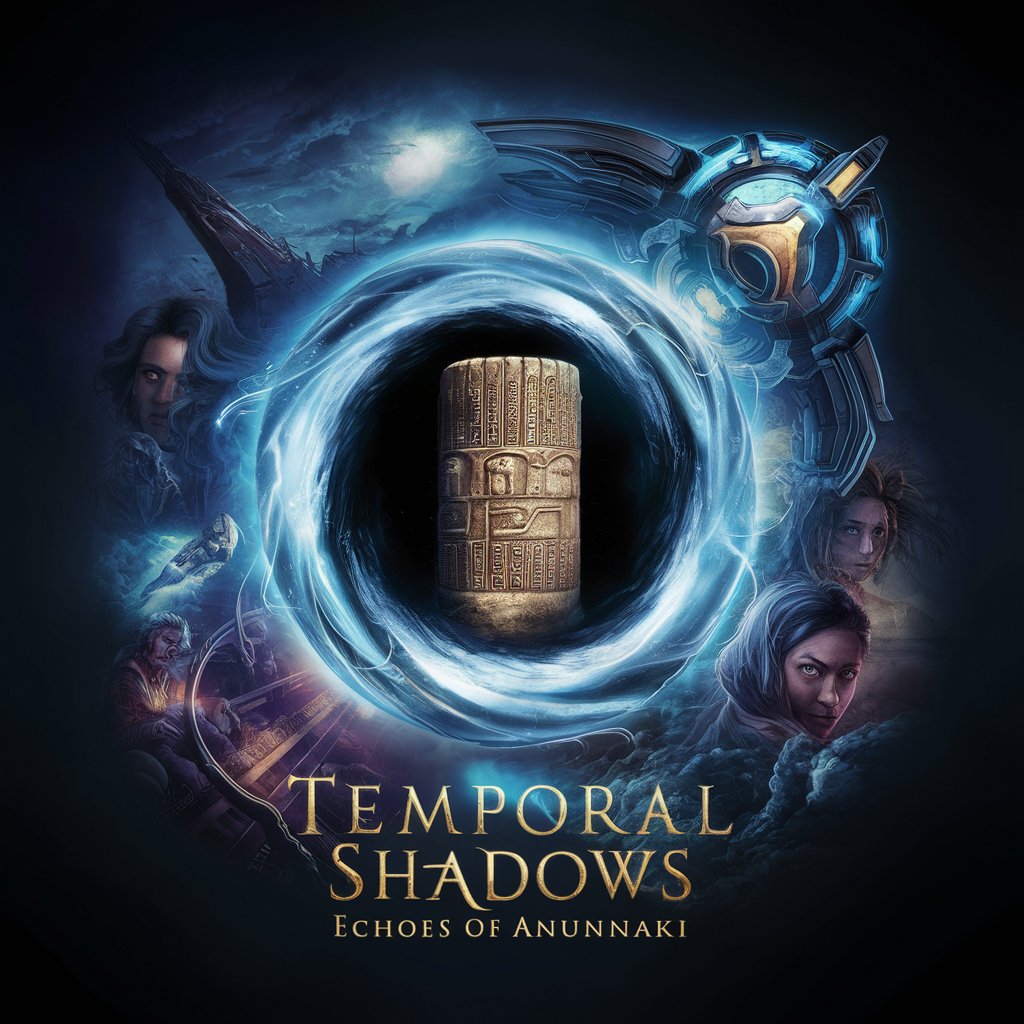
Investment Analysis Master
Empowering Investments with AI Analysis

STCK GPT
Empowering Investment Decisions with AI
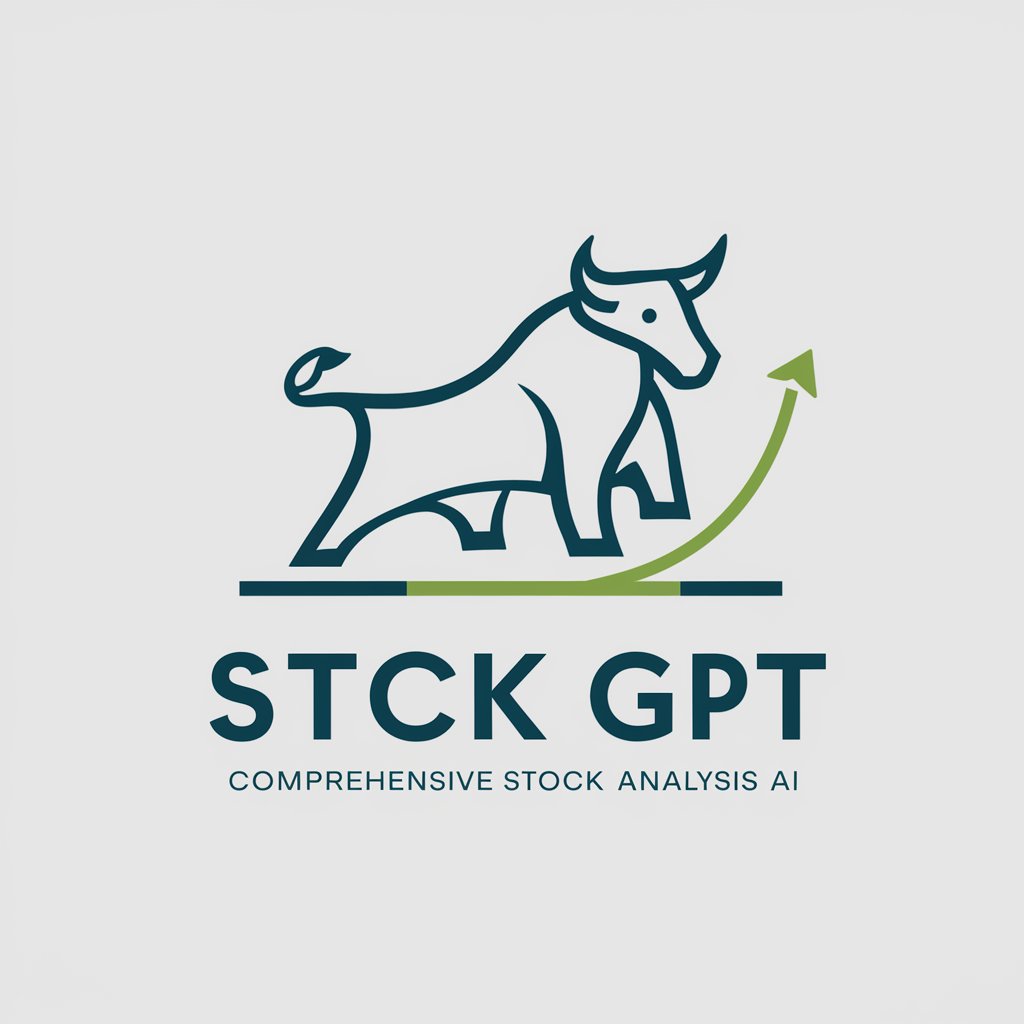
Web Accessibility Navigator
Empowering Inclusive Web Experiences with AI
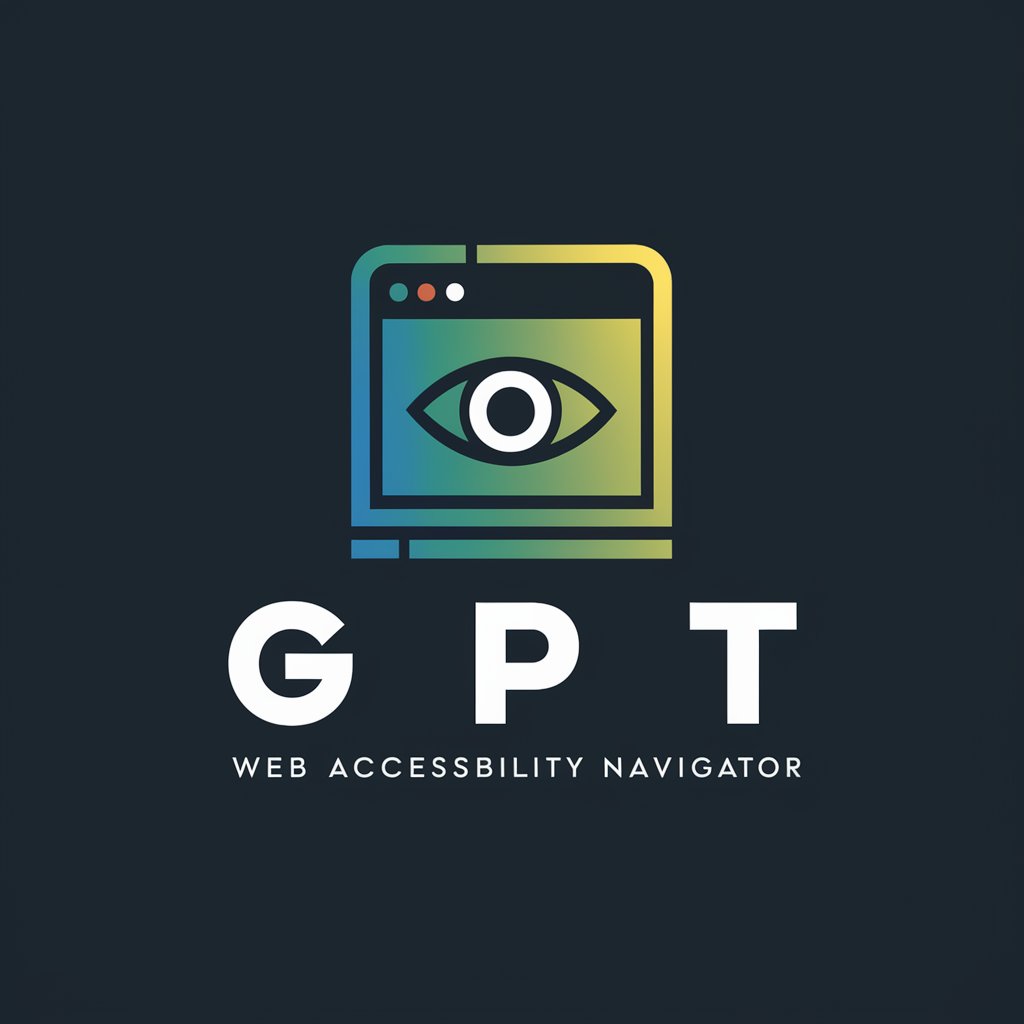
Frequently Asked Questions About Critical Thinker
What is Critical Thinker designed to do?
Critical Thinker is designed to analyze texts deeply, identifying biases, assumptions, and overlooked perspectives. It encourages users to think critically about the content, fostering a more comprehensive understanding beyond surface-level analysis.
Can Critical Thinker be used for educational purposes?
Yes, Critical Thinker is an excellent tool for educational settings, enhancing students' and educators' abilities to critically assess texts, research papers, and academic discussions. It fosters a critical thinking mindset essential for academic success.
How does Critical Thinker help in identifying biases?
Critical Thinker uses an analytical framework to detect various types of cognitive, cultural, and logical biases within a text. It prompts users with questions and considerations that challenge conventional thinking and highlight potential biases.
Is Critical Thinker suitable for analyzing news articles and media?
Absolutely, Critical Thinker is adept at dissecting news articles and media content, providing insights into underlying biases, framing effects, and how information is presented to shape public opinion.
Can Critical Thinker assist in professional settings?
Yes, Critical Thinker is valuable in professional environments for evaluating reports, presentations, and communications. It helps in making more informed decisions by understanding the biases and assumptions in business and technical documents.

